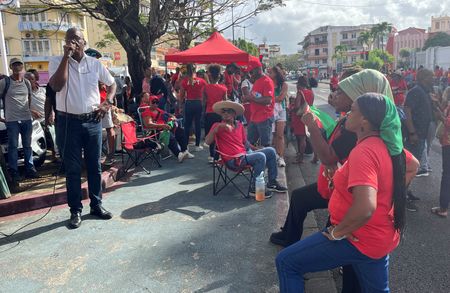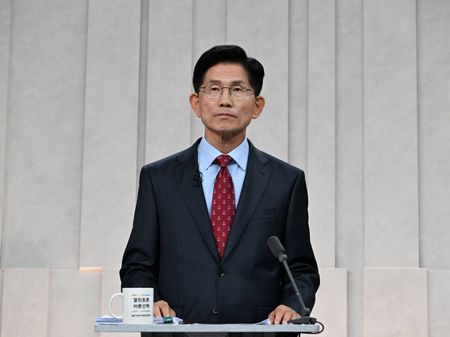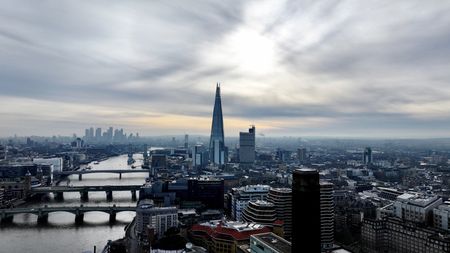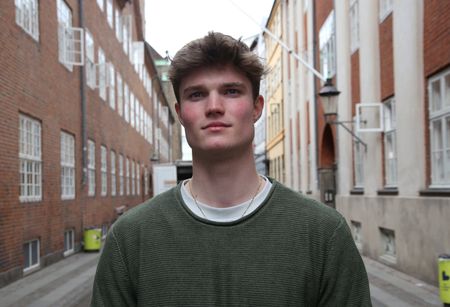By Layli Foroudi
FORT-DE-FRANCE, Martinique (Reuters) -Rodrigue Petitot, who led protests in French-ruled Martinique, left prison on Friday after a court handed him a one-year suspended sentence for trespassing on state property during cost-of-living demonstrations.
Petitot, known as “Le R”, led last year’s social movement on the Caribbean island where poverty levels are twice as high as in France and the cost of living is higher.
The judges ruled that Petitot had pressured police into letting him into the governor’s residence during a meeting with France’s overseas territories minister, and that he had surpassed the limits of freedom of expression.
He was also found guilty of intimidation and verbal assault.
“As long as the people think I’m innocent, I don’t need the justice to tell me that I am,” Petitot told Reuters, saying that the judiciary has always been “in favour of those who have always oppressed the people”.
Petitot is now under house arrest, completing a 10-month sentence from December for violence and intimidation over a TikTok video.
Supporters and his family at the tribunal in Fort-de-France, Martinique’s capital, celebrated his liberation as a victory.
Petitot’s lawyer, Eddy Arneton, said the decision was “favourable” as his client could have faced a 20-year sentence.
“You have the right to say what you think, we have the right to think, and we have the right to express it,” Arneton told the crowd.
The Martinique unrest was one of several recent flashpoints in French territories including an attempt to reduce the voting weight of indigenous Kanak people that led to unrest in the Pacific Ocean archipelago of New Caledonia.
Martinique was colonised by France in 1635 and, like Guadeloupe, French Guiana and La Reunion, made into an administrative “department” by a 1946 law promising equality for overseas territories.
The lower house of the French parliament approved a law on Thursday aimed at tackling high living costs in Martinique and other overseas territories, which included articles obliging companies to publish their accounts and making it illegal for a group to control more than 25% of the market.
Some lawmakers credited the movement led by Petitot to having made the legislation possible.
Overseas Minister Manuel Valls said on Wednesday “transparency, justice, equality, truth must finally be imposed because there is a profound sense of injustice.”
A small number of families descended from slave plantation owners control large parts of the economy in Martinique and contribute to high prices by hiking their margins, specialists in the sector say.
(Editing by Timothy Heritage and Diane Craft)










